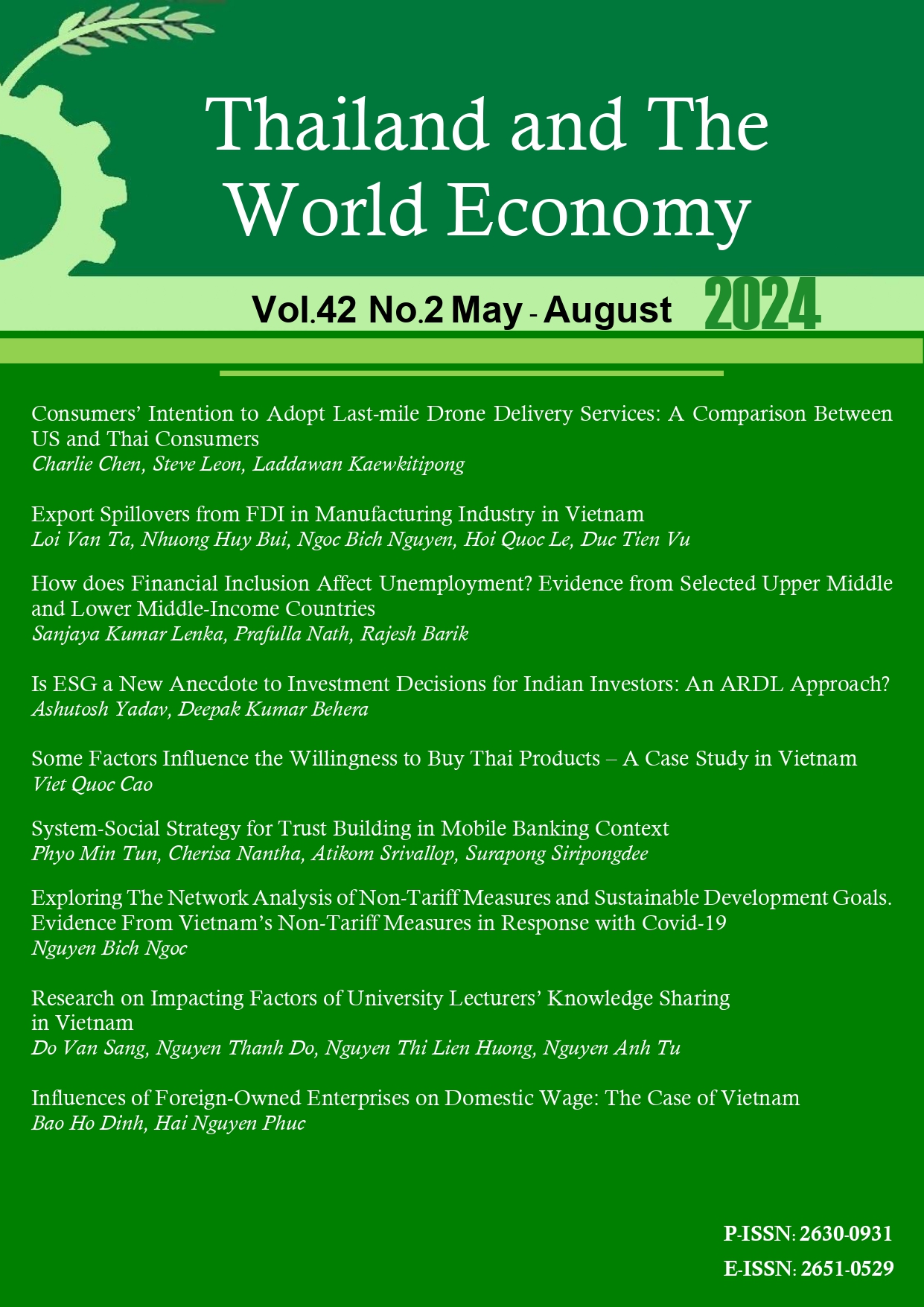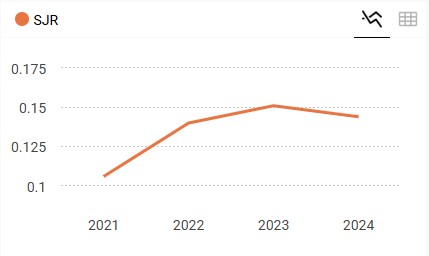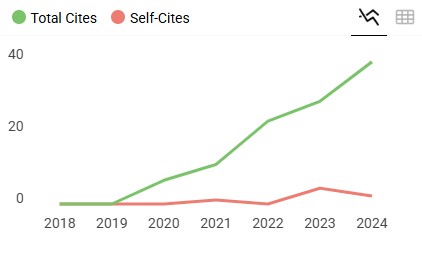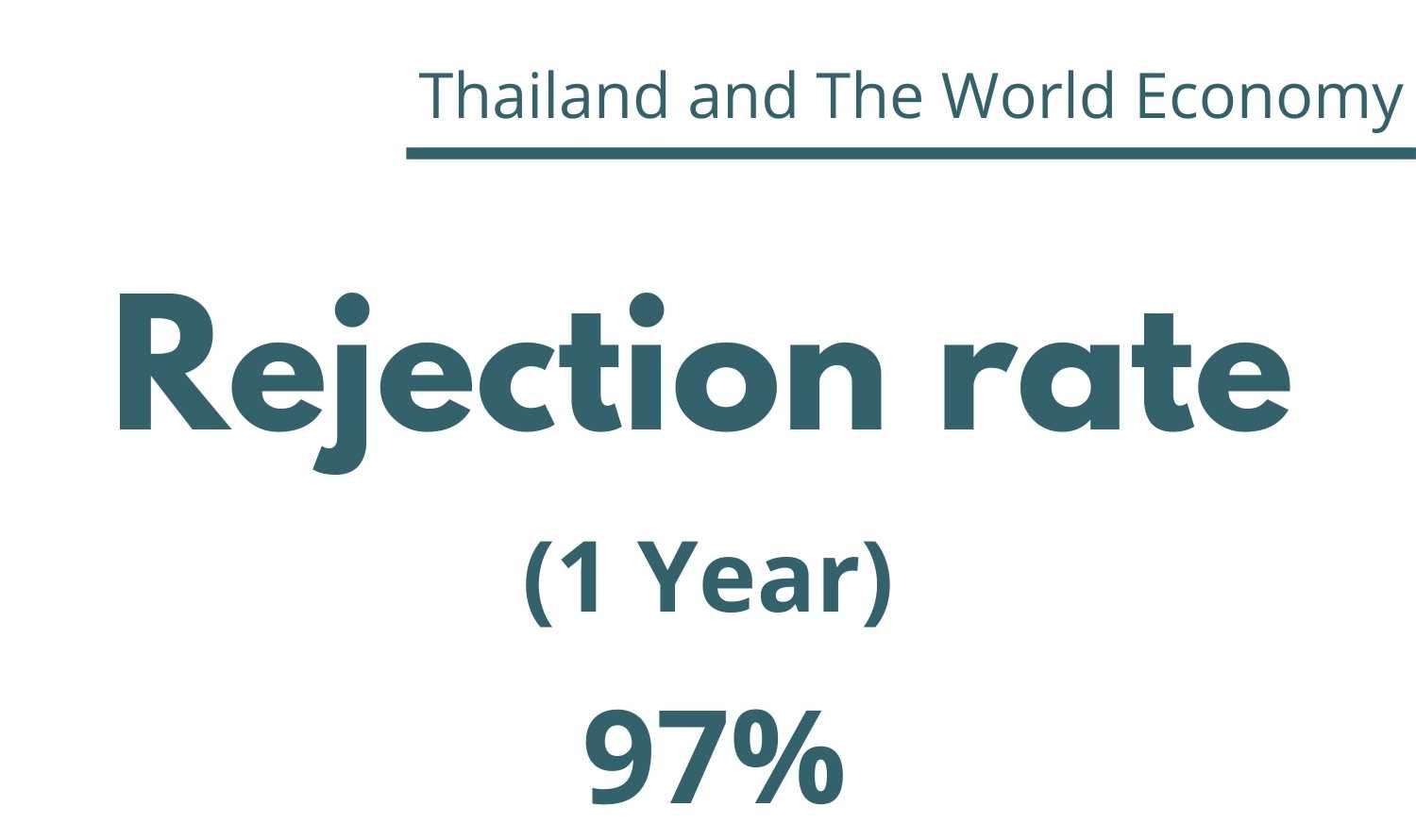Research on Impacting Factors of University Lecturers’ Knowledge Sharing in VietNam
Keywords:
Knowledge sharing, Knowledge technology, Learning organization culture, Rewards, Recruitment, Selection practiceAbstract
This study explores the impact of knowledge technology, learning organization culture, rewards, recruitment and selection practices on knowledge sharing (knowledge donating and knowledge collecting) amongst university lecturers in Vietnam. The paper utilized structural equation modeling and cross-sectional design to test hypotheses in the proposed research model using data collected from 447 lecturers from 13 Vietnamese universities. The result of the data analysis shows that there is a positive relationship between recruitment and selection practices and learning organization culture with knowledge donating and knowledge collecting. But there isn’t a positive relationship between knowledge, technology, and rewards. The study suggests policies and recommendations for educational administrators at universities to promote and enhance knowledge sharing among lecturers.
References
Abualoush, S. H., Obeidat, A.M., Tarhini, A., Masa’deh, RE., & Al-Badi, A. (2018). The role of employees’ empowerment as an intermediary variable between knowledge management and information systems on employees’ performance. VINE Journal of Information and Knowledge Management Systems, 48(2), 217-237.
Al‐Alawi, A. I., Al‐Marzooqi, N.Y., & Mohammed, Y.F. (2007). Organizational culture and knowledge sharing: critical success factors. Journal of Knowledge Management, 11(2), 22‐42.
Alavi, M., & Leidner, D. E. (2001). Knowledge management and knowledge management systems: conceptual foundations and research issues. MIS Quarterly, 25(1), 107-136.
Anantatmula, V. S. (2007). Linking KM effectiveness attributes to organizational performance. VINE: The Journal of Information and Knowledge Management Systems, 37(2), 133-149.
Awang, Z. (2012). A handbook on SEM: Structural equation modeling. (5th ed.), KualaLumpur, Malaysia: Center of Graduate Studies.
Bartol, K. M., & Locke, E. A. (2000). Incentives and motivation. In S. L. Rynes, & B. Gerhart (Eds.), Compensation in Organizations: Current Research and Practice (pp. 104-147). San Francisco: Jossey-Bass.
Bartol, K. M., & Srivastava, A. (2002). Encouraging knowledge sharing: The role of organizational reward systems. Journal of Leadership and Organizational Studies, 9(1), 64‐77.
Bock, G.W., Zmud, R.W., Kim, Y. G., & Lee, J.N. (2005). Behavioral intention formation in knowledge sharing: Examining the roles of extrinsic motivators, social-psychological forces, and organizational climate. MIS Quarterly, 29(1), 87-111.
Borges, R., Bernardi, M., & Petrin, R. (2019). Cross-country findings on tacit knowledge sharing: Evidence from the Brazilian and Indonesian IT workers. Journal of Knowledge Management, 23(4), 742-762.
Cabrera, E.F., & Cabrera, A. (2005). Fostering knowledge sharing through people management practices. International Journal of Human Resource Management, 16(5), 720‐35.
Calantone, R.J., Cavusgil, S. T., & Zhao, Y. (2002). Learning orientation, firm innovation capability, and firm performance. Industrial Marketing Management, 31(6), 51524.
Dalkir, K. (2005). Knowledge management in theory and practice. Boston, MA: Elsevier Butterworth - Heinemann.
Fey, C., & Denison, D. (2000). Organizational culture and effectiveness: The case of foreign firms in Russia. SSE/EFI Working Paper Series in Business Administration No. 2000:4. Retrieved from https://ideas.repec.org/p/hhb/hastba/2000_004.html.
Chatman, J.A. (1991). Matching people and organization: Selection and socialization in public accounting firms. Administrative Science Quarterly, 36(3), 459‐84.
Chaudhry, A.S. (2005). Knowledge sharing practices in Asian Institutions: A multicultural perspective from Singapore. Proceedings of the 7th I FLA General Conferenceand Council of the World Library and Information Congress. Oslo, Norway.
Che, T., Wu, Z., Wang, Y., & Yang, R. (2019). Impacts of knowledge sourcing on employee innovation: The moderating effect of information transparency. Journal of Knowledge Management, 23(2), 221-239.
Choi, S. Y., Kang, Y. S., & Lee, H. (2008). The effects of socio-technical enablers on knowledge sharing: An exploratory examination. Journal of Information Science, 34(5), 742-754.
Connelly, C.E., & Kelloway, E.K. (2003). Predictors of employees' perceptions of knowledge sharing cultures. Leadership and Organization Development Journal, 24, 294‐301.
Currie, G., & Kerrin, M. (2003). Human resource management and knowledge management: Enhancing knowledge sharing in a pharmaceutical company. The International Journal of Human Resource Management, 14(6), 1027‐45.
Cyril Eze, U., Guan Gan Goh, G., Yih Goh, C., & Ling Tan, T. (2013). Perspectives of SMEs on knowledge sharing. Vine, 43(2), 210-236.
De Vries, R.E., Van Den Hooff, B., & De Ridder, J.A. (2006). Explaining knowledge sharing: The role of team communication styles, job satisfaction, and performance beliefs. Communication Research, 33(2), 115-135.
Edvardsson, I. R. (2008). HRM and knowledge management. Employee Relations, 30(5), 553-561.
Fong, C. Y., Ooi, K. B., Tan, B. I., Lee, V. H., & Chong, A. Y. L. (2011). HRM practices and knowledge sharing: an empirical study. International Journal of Manpower, 32(5/6), 704-723.
Foss, N.J., Minbaeva, D.B., Pedersen, T., & Reinholt, M. (2009). Encouraging knowledge sharing among employees: How job design matters. Human Resource Management, 48(6), 871-893.
Grant, R. M. (1996). Toward a knowledge-based theory of the firm. Strategic Management Journal, 17(S2), 109-122.
Goffee, R., & Jones, G. (1996). What holds the modern company together. Harvard Business Review, Nov - Dec, 133-148.
Goodman, S.A., & Svyantek, D.J. (1999). Person‐organization fit and contextual performance: Do shared values matter?. Journal of Vocational Behavior, 55(2), 254‐75.
Gouldner, A.W. (1960). The norm of reciprocity. American Sociological Review, 25(2), 165-167.
Hair Jr, J. F., Sarstedt, M., Hopkins, L., & Kuppelwieser, V. G. (2014). Partial least squares structural equation modeling (PLS-SEM): An emerging tool in business research. European Business Review, 26(2), 106-121.
Hogel, M., Parboteeah, K.P., & Munson, C.L. (2003). Team‐level antecedents of individuals' knowledge networks. Decision Sciences, 34(4), 741‐70.
Jimenez-Jimenez, D., & Sanz-Valle, R. (2013). Studying the effect of HR practices on the knowledge management process. Personnel Review, 42(1), 28-49.
Kim, S., & Trimi, S. (2007). IT for KM in the management consulting industry. Journal of Knowledge Management, 11(3), 145-155.
Levin, D. Z., & Cross, R. (2004). The strength of weak ties you can trust: The mediating role of trust in effective knowledge transfer. Management Science, 50(11), 14771490.
Lin,H. F. (2007). Knowledge sharing and firm innovation capability: An empirical study. International Journal of Manpower, 28(¾),315-337.
Lin, H.F., & Lee, G.G. (2004). Perceptions of senior managers toward knowledgesharing behaviour. Management Decision, 42(1), 108‐25.
Newell, S., Bresnen, M., Edelman, L., Scarbrough, H., & Swan, J. (2006). Sharing knowledge across projects: Limits to ICT‐led project review practices. Management Learning, 37(2), 167‐85.
Nonaka, I. (1994). A dynamic theory of organizational knowledge creation. Organization Science, 5(1), 14-37.
Nunnally, J.C. (1978). Psychometric theory. New York, NY: McGraw-Hill. Oyemomi, O., Liu, S., Neaga, I., Chen, H. ,& Nakpodia, F. (2019). How cultural impact on knowledge sharing contributes to organizational performance: Using the
fsQCA approach. Journal of Business Research, 94, 313-319.
Riege, A. (2005). Three-dozen knowledge-sharing barriers managers must consider. Journal of knowledge management, 9(3), 18-35.
Shariq, S.M., Mukhtar, U., & Anwar, S. (2019). Mediating and moderating impact of goal orientation and emotional intelligence on the relationship of knowledge oriented leadership and knowledge sharing. Journal of Knowledge Management, 23(2), 332-350.
Schein, E.H. (1996). Three cultures of management: The key to organizational learning. Sloan Management Review, 38(1), 9-20.
Simonin, B., & Ozsomer, A. (2009). Knowledge processes and learning outcomes in MNCs: An empirical investigation of the role of human recourse practices in foreign subsidiaries. Human Resource Management, 48(4), 505-530.
Srivastava, A., Bartol, K. M., & Locke, E. A. (2006). Empowering leadership in management teams: Effects on knowledge sharing, efficacy, and performance. Academy of management journal, 49(6), 1239-1251.
Teece, D. J. (1998). Capturing value from knowledge assets: The new economy, markets for know-how, and intangible assets. California Management Review, 40(3), 55-79.
Van Den Hooff, B., & de Leeuw Van Weenen, F. (2004). Committed to share: Commitment and CMC use as antecedents of knowledge sharing. Knowledge & Process Management, 11(1), 13-24.
Van den Hooff, B., & de Ridder, J.A. (2004), Knowledge sharing in context: The influence of organizational commitment, communication climate and CMC use on knowledge sharing. Journal of Knowledge Management, 8 (6), pp. 117-130.
Van Wijk, R., Jansen, J. J. P., & Lyles, M. A. (2008). Inter- and intra-organizational knowledge transfer: A meta-analytic review and assessment of its antecedents and consequences. Journal of Management Studies, 45(4), 830-853.
Watkins, K. E., & Marsick, V. J. (1993). Sculpting the learning organization: Lessons in the art and science of systemic change (Jossey bass business & management series) (1st ed.). San Francisco, Calif., Jossey-Bass.
Watkins, K. E., & Marsick, V. J. (1996). Adult educators and the challenge of the learning organization. Adult Learning, 7(4), 18-20.
Watkins, K. E., & Marsick, V. J. (2019). Conceptualizing an organization that learns. In Ortenblad A. (Ed.), The Oxford Handbook of the Learning Organization (pp. 5166). New York: Oxford University Press.
Wang, S., & Noe, R.A. (2010). Knowledge sharing: A review and directions for future research. Human Resource Management Review, 20(2), 115-131.
Wolfe, C., & Loraas, T. (2008). Knowledge sharing: The effects of incentives,
environment, and person. Journal of information systems, 22(2), 53-76.
Downloads
Published
How to Cite
Issue
Section
License
Copyright (c) 2024 Thailand and The World Economy

This work is licensed under a Creative Commons Attribution-NonCommercial-NoDerivatives 4.0 International License.










